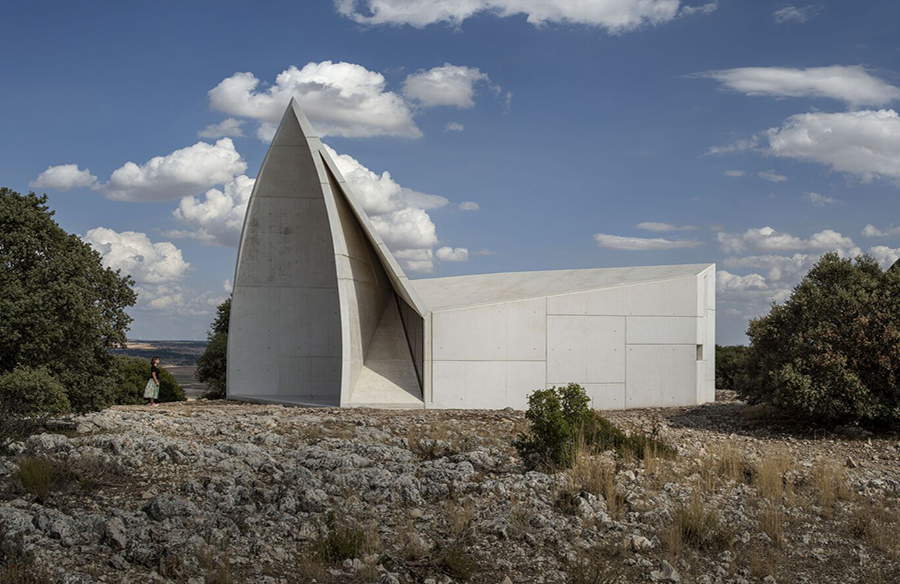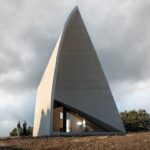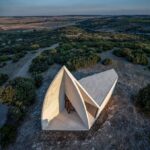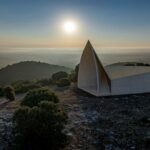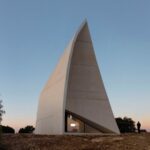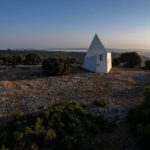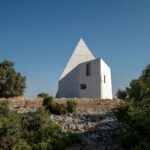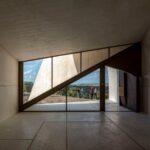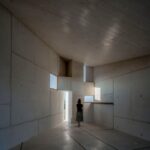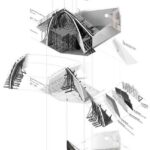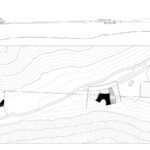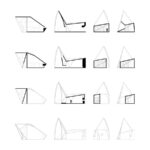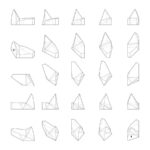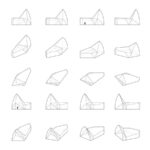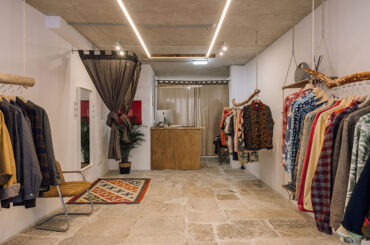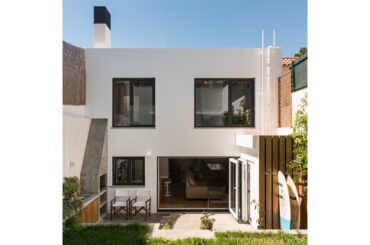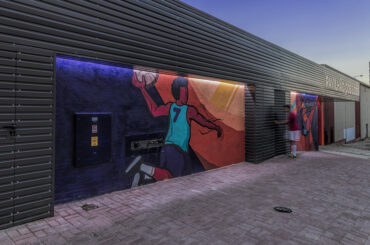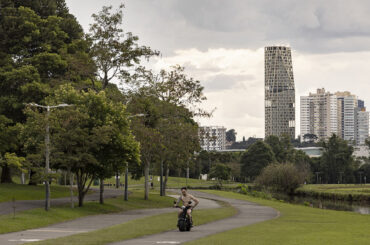Embracing Tradition and Modernity
Situated in the picturesque countryside of Cuenca, central Spain, the chapel in Villaescusa de Haro stands as a testament to the fusion of tradition and modernity. Designed by Sancho Madridejos, the chapel is part of a larger project that includes a residence for the owning family, set amidst a rural estate adorned with ancient holm oaks and truffle cultivation.
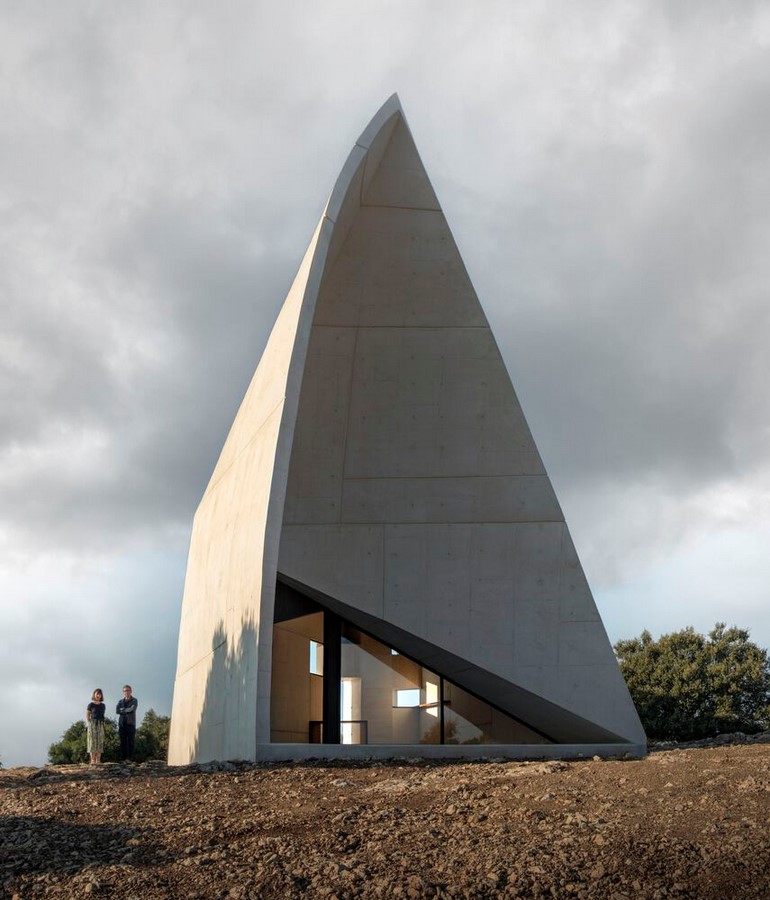
Architectural Concept
The chapel’s design is anchored in a single curved fold, reminiscent of the Chapel in Valleacerón, another notable project by the architects. Constructed using reinforced concrete, this unique form responds to the complex topography of the surrounding landscape. The structural integrity of the fold allows for the creation of dynamic spaces that evolve with the changing play of light throughout the day.
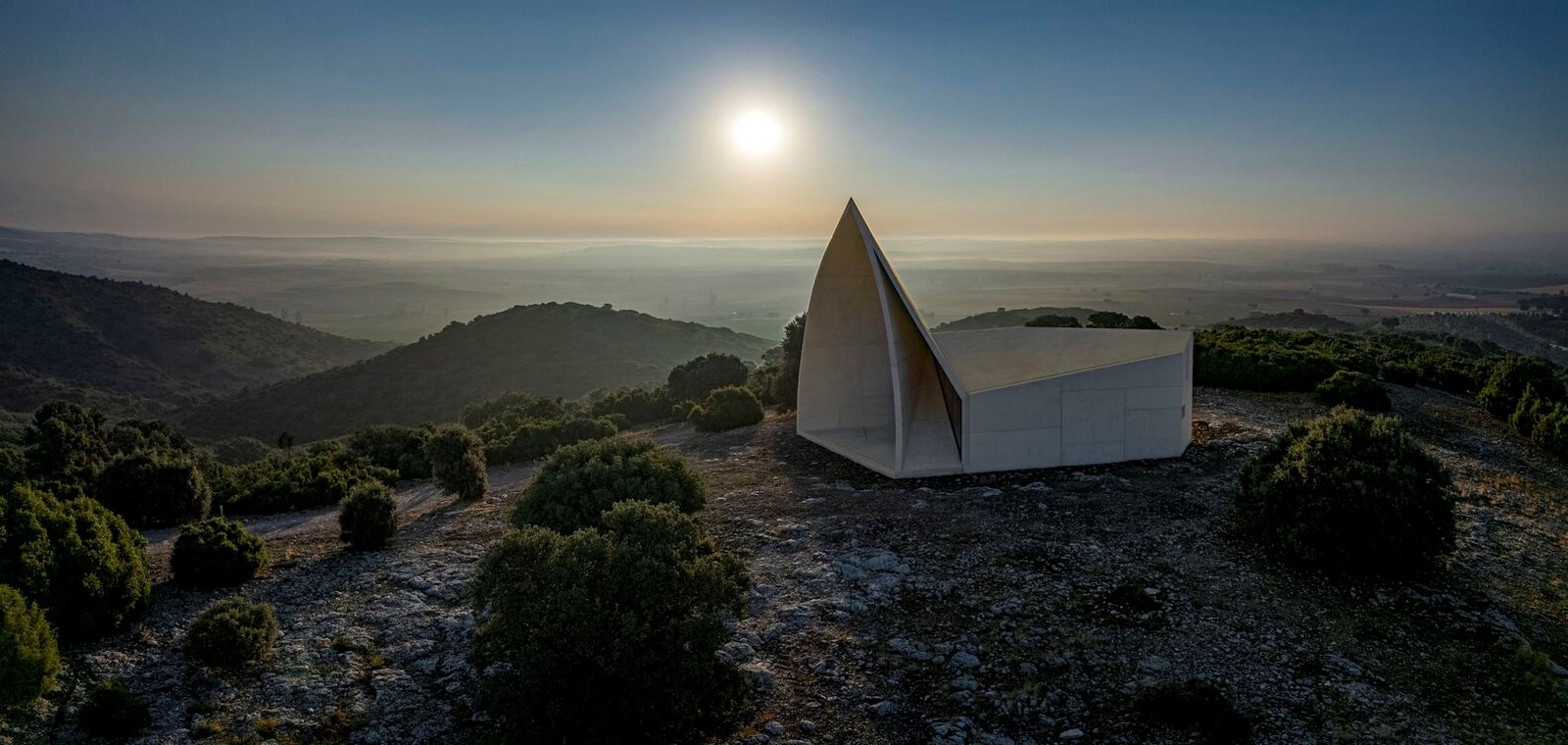
Spatial Dynamics
Unlike conventional chapels, this design features a spacious entrance that gradually narrows towards a compressed end. A striking concrete cross, suspended within the fold, punctuates the space and illuminates it with natural light. This interplay of light and shadow transforms the interior, offering visitors a unique spatial experience that is both contemplative and dynamic.
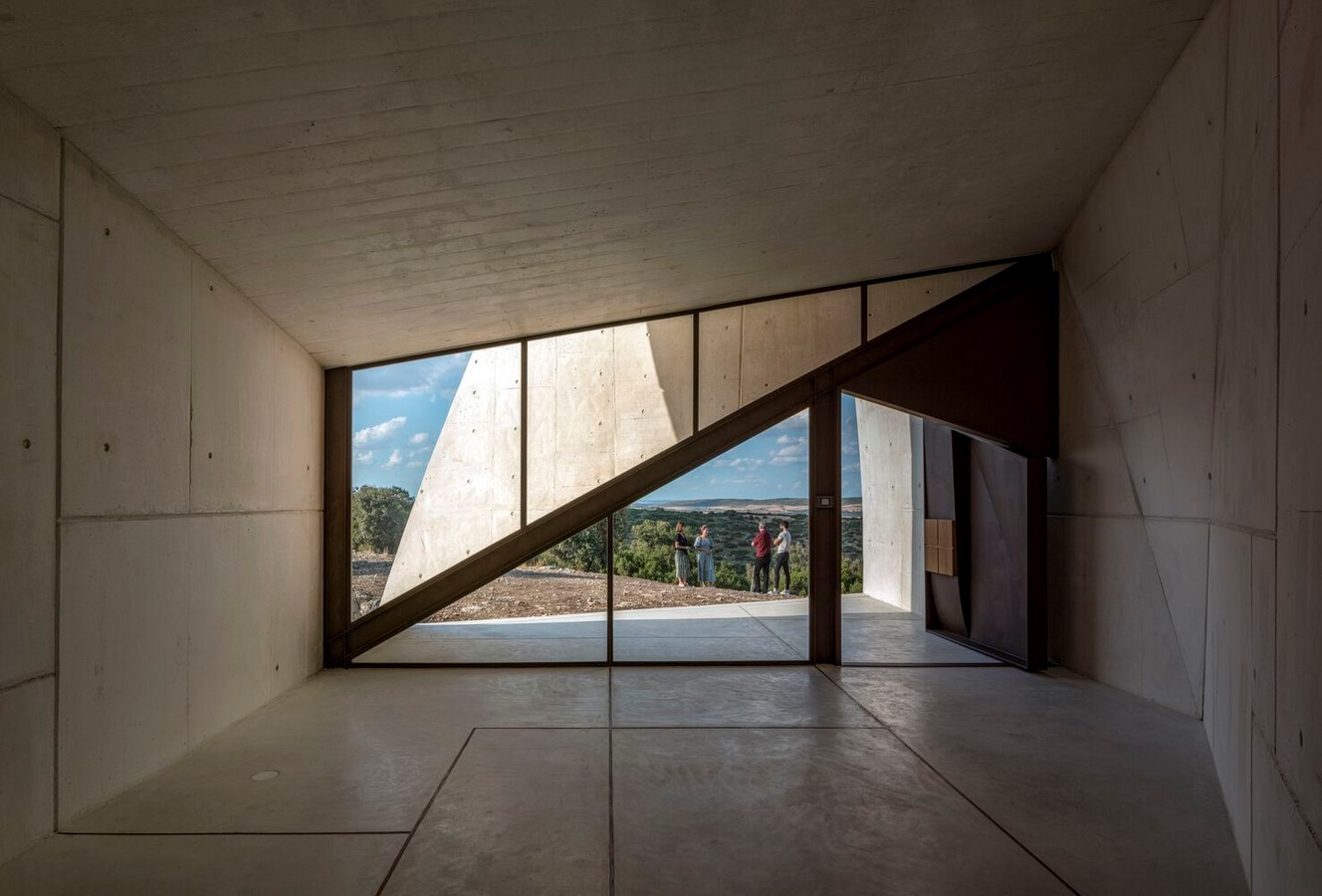
Symbolism and Functionality
Positioned strategically within the estate, the chapel serves as a visual landmark, guiding visitors from the access point to the residence. Its location ensures that it remains a focal point, visible from various vantage points, including the winding road that leads to the estate.
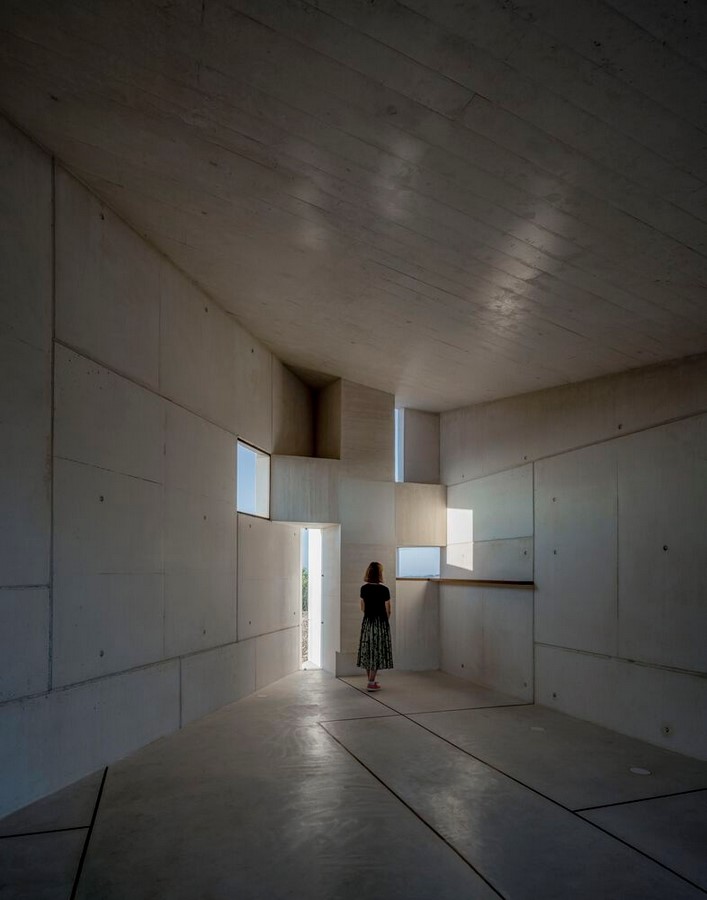
Integration with Surroundings
Adjacent to the chapel, the residence is nestled atop a small hill, offering panoramic views of the valley adorned with cherry trees and crop fields. Designed with a double concrete dome, the residence harmoniously blends with the natural contours of the landscape, creating a seamless transition between the public and private areas of the house.
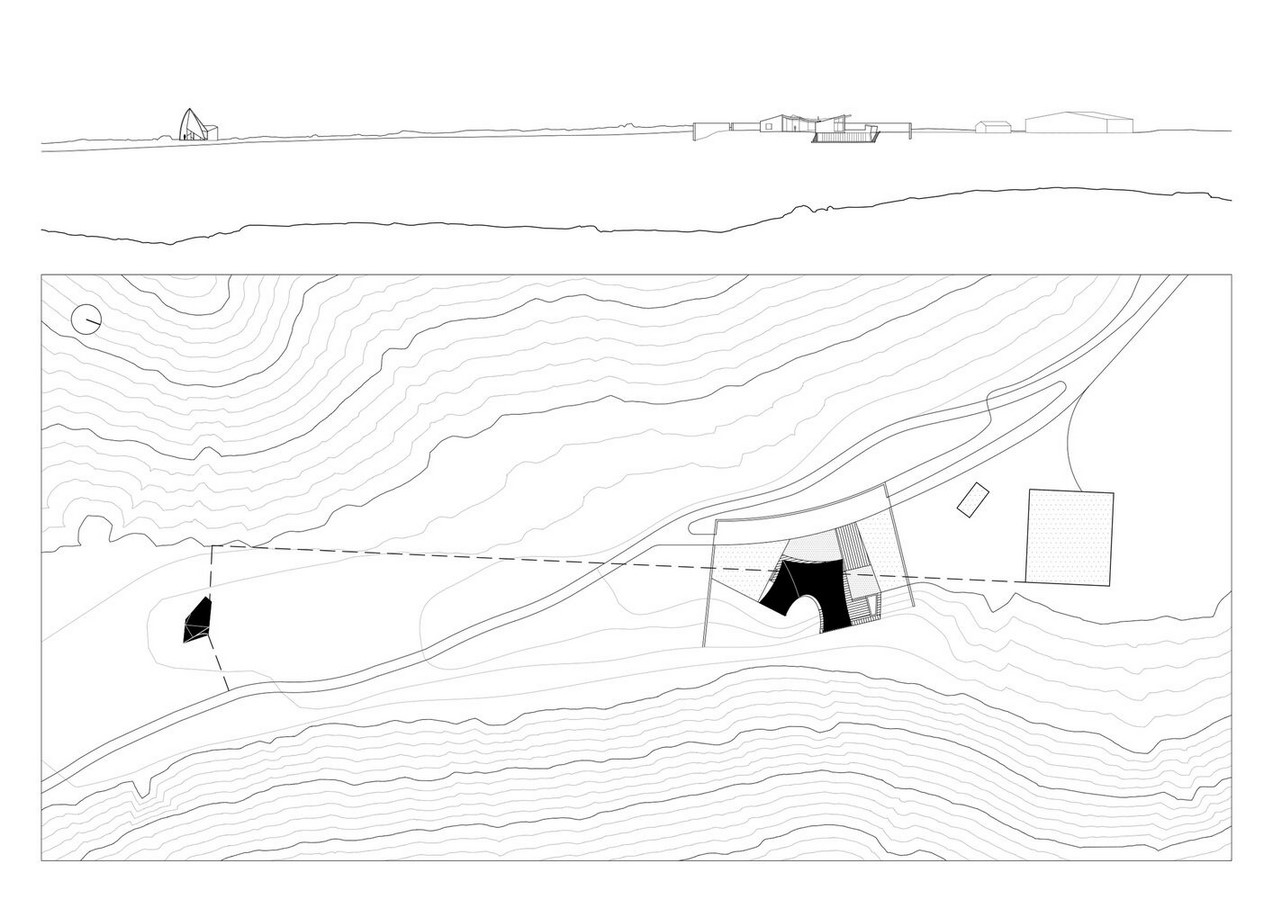
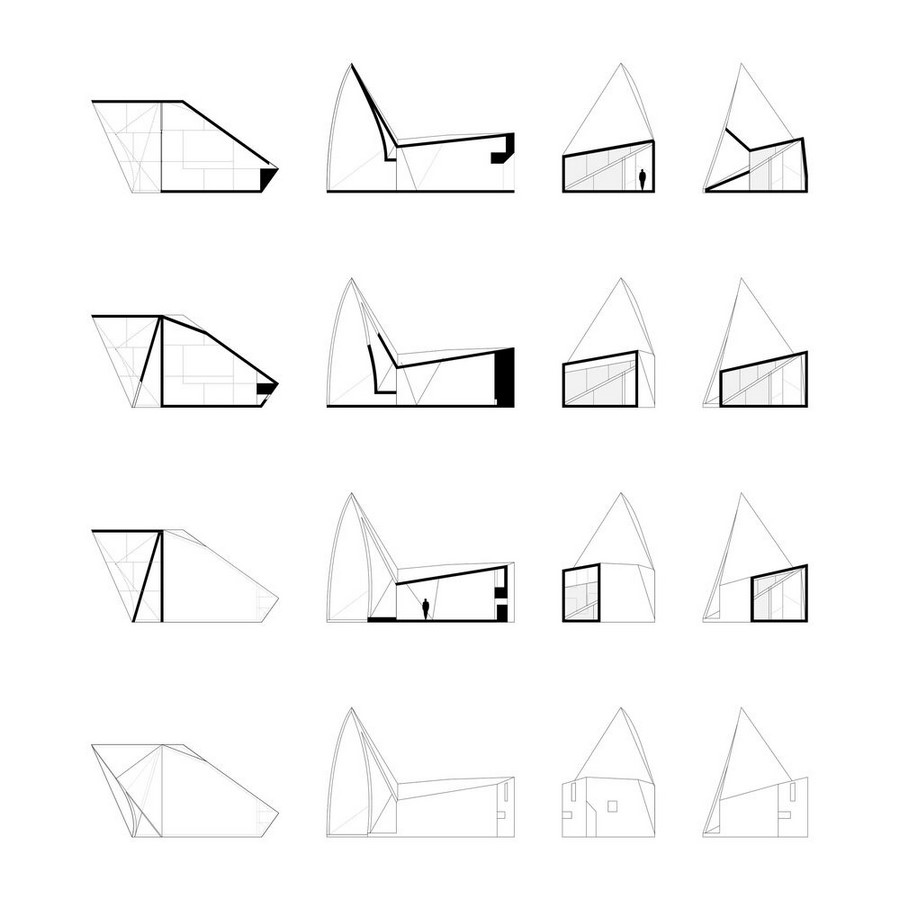
Conclusion
The Chapel in Villaescusa de Haro represents a harmonious synthesis of architectural innovation and respect for the natural environment. Through its bold design and strategic placement, it not only fulfills its function as a place of worship but also enhances the scenic beauty of its rural surroundings, creating a tranquil oasis for spiritual reflection and contemplation.



